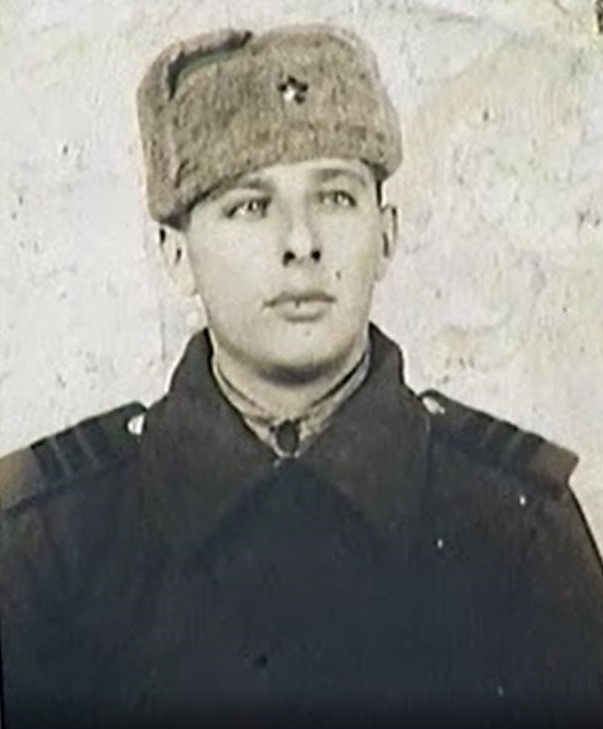Vladimir Roiz was born in 1915 in Ananyev, north of Odessa. His father Motye was disabled, and his mother Sima died in 1928. Vladimir had to support the family (father and three sisters) by engaging in petty trade, which was not always legal from the Soviet point of view. In 1935, Vladimir moved to the larger town of Tiraspol (in present-day Moldova), where he was, successively, a factory worker, a railway worker, and a forwarder. It is unclear when Vladimir first underwent military training. In 1939, he was drafted into the Red Army for a brief time; he served on the Romanian border, west of Tiraspol.
On the second day of the Soviet-German War, Roiz was drafted for the second time. He initially served as a supplier of ammunition, and was later trained to be a cannon charger. Roiz's unit retreated to Odessa, and he took part in the defense of that city. In October 1941, the Red Army abandoned Odessa. Roiz was unable to evacuate with his regiment, and found himself under Romanian occupation. The Romanians imprisoned him in a ghetto in Pishchana, north of Balta, in the Odessa region.
In March 1944, Pishchana was liberated by the Red Army, and Roiz enlisted in it for the third time. He now served as a machine gunner in the Guards 69th Rifle Division, and also completed a sergeant school, receiving the rank of corporal. With his division, Roiz took part in the Jassy–Kishinev offensive in August 1944, and then in the takeover of the Romanian "oil city" of Ploieşti. After a brief stay in Yugoslavia, he was transferred to Hungary, where he was seriously wounded in the area of Székesfehérvár. After recovering at a hospital, Roiz was dismissed from active service, and then discharged from the army altogether in 1946. He settled in Tiraspol.
In the course of the war, Roiz was awarded the medal "For Courage."







